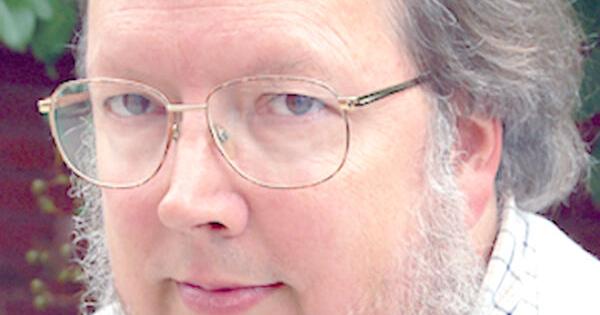Faith in the Fast Lane: Why Ross Douthat Believes Religion Still Matters in a Secular World
Religion
2025-04-13 18:00:45Content

In his provocative new book, Believe: Why Everyone Should Be Religious, acclaimed New York Times columnist Ross Douthat offers a compelling exploration of faith's enduring significance in contemporary society. Moving beyond traditional religious debates, Douthat crafts a nuanced argument that challenges secular assumptions and illuminates the profound personal and social benefits of religious belief.
Drawing from historical insights, philosophical reasoning, and personal reflection, Douthat makes a passionate case for why religious engagement matters in an increasingly fragmented and individualistic world. He suggests that faith is not merely a relic of the past, but a dynamic force that can provide meaning, community, and moral guidance in an age of uncertainty.
The book delves into how religious traditions can offer individuals a sense of purpose and connection, while also addressing broader societal challenges. Douthat argues that religious perspectives can provide unique insights into ethics, personal growth, and collective understanding that secular frameworks often struggle to articulate.
By presenting a thoughtful and accessible narrative, Douthat invites readers to reconsider their preconceptions about religion and explore its potential as a transformative personal and social experience. His work promises to spark important conversations about spirituality, belief, and the role of faith in modern life.
Faith in the Modern World: Unraveling the Spiritual Tapestry of Contemporary Society
In an era of increasing secularization and technological advancement, the role of religious belief continues to spark profound conversations about human meaning, purpose, and connection. Ross Douthat's groundbreaking exploration challenges readers to reconsider the fundamental importance of faith in navigating the complex landscape of modern existence, offering a nuanced perspective that transcends traditional religious discourse.Rediscovering Spiritual Significance in a Disconnected Age
The Erosion of Traditional Belief Systems
Contemporary society stands at a critical crossroads of spiritual understanding. As technological progress accelerates and scientific rationalism dominates intellectual discourse, traditional religious frameworks have experienced unprecedented challenges. Douthat argues that this erosion of belief is not merely a sociological phenomenon but a profound existential crisis that threatens human psychological and social cohesion. The decline of organized religion has created a spiritual vacuum, leaving individuals searching for deeper meaning beyond material achievements. Modern humans increasingly find themselves disconnected from ancestral wisdom, struggling to reconcile scientific knowledge with existential questions about purpose and transcendence.Faith as a Psychological Anchor
Religious belief emerges as a critical psychological mechanism for understanding complex human experiences. Psychological research suggests that spiritual practices provide individuals with robust coping mechanisms, emotional resilience, and a sense of community that secular institutions often fail to deliver. Neurological studies demonstrate that religious practices activate brain regions associated with meaning-making, empathy, and emotional regulation. These findings challenge simplistic narratives that dismiss faith as irrational, instead presenting religious belief as a sophisticated adaptive strategy for navigating human complexity.Spiritual Diversity in a Globalized World
The contemporary religious landscape is characterized by unprecedented diversity and fluidity. Traditional boundaries between religious traditions are becoming increasingly porous, with individuals exploring hybrid spiritual practices that blend elements from multiple belief systems. This spiritual eclecticism reflects a more nuanced understanding of religious experience, moving beyond rigid doctrinal frameworks toward more personalized, experiential approaches to understanding existential questions. Douthat suggests that this evolution represents not a decline but a transformation of religious consciousness.The Societal Implications of Spiritual Engagement
Religious belief extends far beyond individual psychological experiences, profoundly influencing social structures, ethical frameworks, and collective behavior. Communities grounded in shared spiritual practices demonstrate remarkable resilience, social cohesion, and capacity for collective action. Empirical research indicates that societies with strong spiritual foundations tend to exhibit higher levels of social trust, collaborative problem-solving, and emotional support networks. These findings challenge reductive narratives that position religious belief as inherently divisive or regressive.Navigating Spiritual Complexity in the Digital Age
Digital technologies have fundamentally transformed how individuals engage with spiritual experiences. Online platforms enable unprecedented access to diverse religious perspectives, creating new forms of spiritual community that transcend geographical and cultural boundaries. Social media and digital communication technologies offer novel mechanisms for spiritual exploration, allowing individuals to connect, share experiences, and challenge traditional religious hierarchies. This digital spiritual landscape represents a dynamic, evolving ecosystem of meaning-making.Philosophical and Existential Dimensions of Faith
Beyond sociological analysis, Douthat's work delves into profound philosophical questions about human consciousness, meaning, and transcendence. Religious belief emerges as a sophisticated philosophical framework for understanding human experience, offering complex interpretations of existence that complement scientific understanding. Philosophical inquiry reveals religious belief as a nuanced epistemological approach, providing metaphorical and symbolic resources for comprehending complex existential challenges that empirical methodologies cannot fully address.RELATED NEWS
Religion

Faith, Flavor, and Viral Trends: The Unexpected Intersection of Spirituality and Social Media
2025-03-27 20:16:29
Religion

Faith, Funding, and Education: Supreme Court Edges Toward Mandating Religious School Inclusion
2025-04-30 20:49:54






